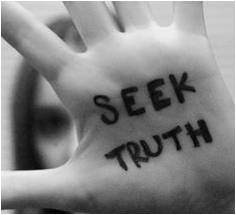A new poll from Harris Interactive suggests that 90 percent of adults ages 18-34 believe that the advertising they see is truthful (at least some of the time). In contrast, only 81 percent of those 55 and over feel the same way. When asked if advertising was truthful “all or most of the time” 24 percent of young adults agreed, compared to only 16 percent of those over the age of 55.
the time” 24 percent of young adults agreed, compared to only 16 percent of those over the age of 55.
So why the disparity? Is Gen Y simply gullible? I don’t think so. In fact, I think exactly the opposite. I believe they’re really savvy.
Generation “Lie”
If you’re 55 and over you grew up on a steady diet of false advertising. It was a claim that seemed to pop up in the media with almost daily regularity. You’re part of a generation that lived vicariously through Mike Wallace and the 60 Minutes News Team as they busted into seedy businesses, probing endless claims of false advertising and fraudulent business practices, where they berated the sweaty company spokesperson until they cracked under the pressure.
If that wasn’t enough, every major daily newspaper had its resident pit-bull consumer advocate. Each week we’d hear about another company that had set out to scam an unwitting consumer, only to be outed after a significant weeks-long investigation.
And it wasn’t just hysteria. There really was a lot of false advertising, largely because there could be. It was feasible. Companies could get away with it. The world was a big place where corporate executives could hide in ivory towers, unconcerned about the angry mob outside.
It took a lot to bring a brand down and no one knew this better than the brands themselves.
Generation Y
If you’re under the age of 35 you have a very different view.
You’ve grown up watching brands who dared to pull a fast one, publicly executed in the court of the internet. You’ve seen YouTube videos posted within minutes of a product failing to meet its claims, only to have thousands of viewers chime in with lightening fast support.
You’ve seen big companies…really big companies…fail. You grew up with the understanding that you were your own 60 minutes crew. All you needed was a camcorder and a Facebook account and you could affect change.
For the generations before you, “free” was often a code word for rip-off. You on the other hand have grown up downloading free stuff that is really free and moreover, actually does what it says it will do.
So, the way I see it, if all we do is look at this survey with a sceptical tilt of the head and dismiss it, we miss the fact that something really cool might be happening. It might be that a new generation of consumers is putting the truth back in advertising right before our eyes. Let’s not discourage them.

